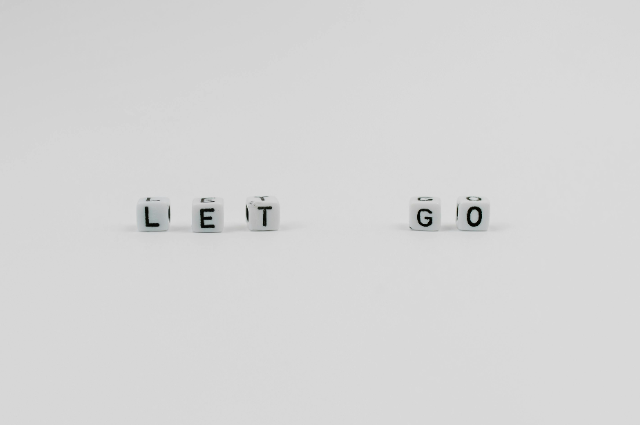
In a world driven by endless change and relentless pursuit, letting go is one of the rarest, most transformative skills a person can master. The idea of letting go often evokes images of surrender or loss, but this art goes far beyond simple release; it’s an empowered act of choice, courage, and clarity. In a global landscape where adaptability defines success, letting go becomes essential—not just as a survival skill but as a form of self-mastery that fuels growth, resilience, and reinvention.
The Global Imperative: Why Letting Go Matters Now More Than Ever
Today, letting go isn’t just personal; it’s a global necessity. We live in a world where seismic shifts happen overnight—business models crumble, industries rise and fall, social norms morph at unprecedented speeds. In this atmosphere, clinging to what we know can be more limiting than liberating. Letting go has become a form of “future-proofing”—an active skill that, when mastered, can help people navigate uncertainty with confidence.
"In a world in flux, the real power isn’t holding on; it’s knowing when to let go.”
The Psychology of Release: Understanding Why We Hold On
At the heart of letting go lies a paradox: we crave freedom yet struggle to relinquish what’s familiar. Our brains are hardwired for attachment, and letting go of our comfort zones, dreams, or even relationships can feel akin to losing part of ourselves. But when we understand the psychology behind our attachments, we gain power over them.
Letting go involves rewiring our attachment to a specific outcome and shifting focus to the opportunities beyond it. Psychologists suggest that simply acknowledging the emotions that accompany letting go—whether it’s fear, sadness, or nostalgia—can loosen their grip on us. This process reframes letting go from a painful release to an empowered step forward, enabling us to see what’s possible beyond our attachment.
"Letting go doesn’t mean giving up; it’s giving ourselves permission to move forward."
Redefining Success: Why Letting Go is the Key to Innovation and Growth
Innovation thrives on the freedom to explore new ideas, but rigid attachment to past successes often stifles it. In the professional world, letting go of outdated practices, hierarchical structures, or rigid goals is more than a nice-to-have; it’s a business imperative. Organizations that embrace the power of release are better able to pivot, adapt, and remain competitive.
The greatest leaders and disruptors have one thing in common—they know when to hold on and when to let go. They recognize that clinging to yesterday’s methods is a surefire way to lose relevance tomorrow. The art of letting go creates a clearing for fresh insights, bold strategies, and unexplored pathways.
"To drive change, you can’t be tethered to tradition; you must be fluent in the art of release."
Mastering the Art of Letting Go: Transformative Strategies
Letting go is not simply an idea; it’s a skill that can be cultivated. Here are transformative strategies that have helped individuals, leaders, and visionaries master the art of letting go:
- Mindfulness as Detachment: Mindfulness encourages us to experience emotions and thoughts without over-identifying with them. By observing emotions like waves, acknowledging their temporary nature, we become less controlled by them. Mindfulness teaches us to witness our thoughts without letting them define us.
- Redefining Identity Through Growth: Often, we hold on because we define ourselves by what we have achieved or who we’ve been. Reimagining ourselves as ever-evolving can make releasing an old identity feel like an expansion rather than a loss.
- Ritualizing the Act of Release: Many cultures honor the art of letting go through symbolic acts—burning old papers, decluttering personal spaces, or engaging in farewell rituals. Physical acts of release can deepen our emotional commitment to letting go.
- Cultivating a “Learn, Unlearn, Relearn” Mindset: Change-makers know that learning is only half the equation. The art of unlearning old habits and relearning new strategies keeps our mindset agile and primed for transformation. Every step of unlearning brings us closer to our most evolved selves.
"Mastery isn’t holding on to what we know; it’s making room for what we have yet to learn."
Letting Go of Relationships and Roles: A Personal and Professional Imperative
Letting go becomes intensely personal when it involves relationships or career paths. Ending a chapter—whether it’s a friendship, a professional role, or even a city you call home—demands resilience and clarity. In the corporate world, holding on to a title, an identity, or a reputation may feel safe, yet it can prevent growth. Reinvention is often born from release; the courage to leave behind the familiar can open doors to new roles that align more closely with your evolving values and purpose.
"Sometimes the best way forward is leaving behind the very identity that got you here."
Letting Go as a Path to Resilience: Embracing Fluidity Over Fear
Letting go builds resilience, a quality that is both personal and universally valuable in today’s world. In a fast-paced environment, those who are rigid in their attachments become brittle, while those who embrace fluidity adapt with grace. Letting go is a choice that fuels resilience by teaching us that we are defined not by what we hold but by our capacity to rebuild.
The world’s most resilient individuals aren’t those who cling to what they’ve known but those who understand that sometimes, holding on can be the heaviest weight of all. By making release an intentional part of life, we transform uncertainty into an open invitation for reinvention.
"Strength isn’t in the grip; it’s in the release.”
Conclusion: The Freedom of Letting Go
Letting go is an art, not a passive surrender but a proactive choice to trust in the unknown. It’s the ultimate act of freedom, a path to authentic growth and profound resilience. The art of letting go teaches us that life’s true riches aren’t in what we cling to but in the courage to move beyond.
"Letting go isn’t losing; it’s creating space for what’s yet to come.”
